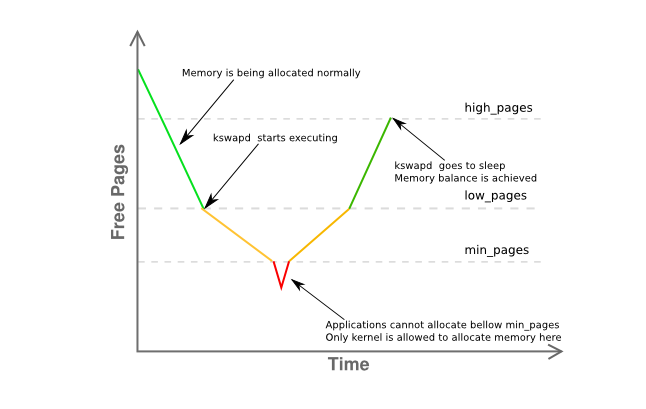If you start seeing these errors it means your server or instance started running out of kernel memory.
[10223.291166] java: page allocation failure: order:0, mode:0x1080020(GFP_ATOMIC), nodemask=(null) [10223.301794] java cpuset=/ mems_allowed=0-1 [10223.307211] CPU: 29 PID: 19395 Comm: java Not tainted 4.14.154-99.181.amzn1.x86_64 #1 [10223.315658] Hardware name: Xen HVM domU, BIOS 4.2.amazon 08/24/2006 [10223.322004] Call Trace: [10223.325230] <IRQ> [10223.328193] dump_stack+0x66/0x82 [10223.332213] warn_alloc+0xe0/0x180
In particular, these Order 0 (zero) errors, mean there isn’t even a single 4K page available to allocate.
This might sound weird on a system were we have a lot of RAM memory available. And actually, this may be a common situation on systems where the kernel is not tuned up properly.
In particular, we need to look at the following kernel parameter:
min_free_kbytes: This is used to force the Linux VM to keep a minimum number of kilobytes free. The VM uses this number to compute a watermark[WMARK_MIN] value for each lowmem zOn one in the system. Each lowmem zone gets a number of reserved free pages based proportionally on its size. Some minimal amount of memory is needed to satisfy PF_MEMALLOC allocations; if you set this to lower than 1024KB, your system will become subtly broken, and prone to deadlock under high loads. Setting this too high will OOM your machine instantly.

On systems with very large amount of RAM memory, this parameter is usually set too low. Change default value (have a look to the previous paragraph to avoid too low or too high values) and restart with sysctl. 1GB is the value I use on most of the large memory servers (64GB+).
sudo sed -i '${s/$/'"\nvm.min_free_kbytes = 1048576"'/}' /etc/sysctl.conf
sysctl vm.min_free_kbytes
echo "reloading the settings:"
sudo /sbin/sysctl -p
